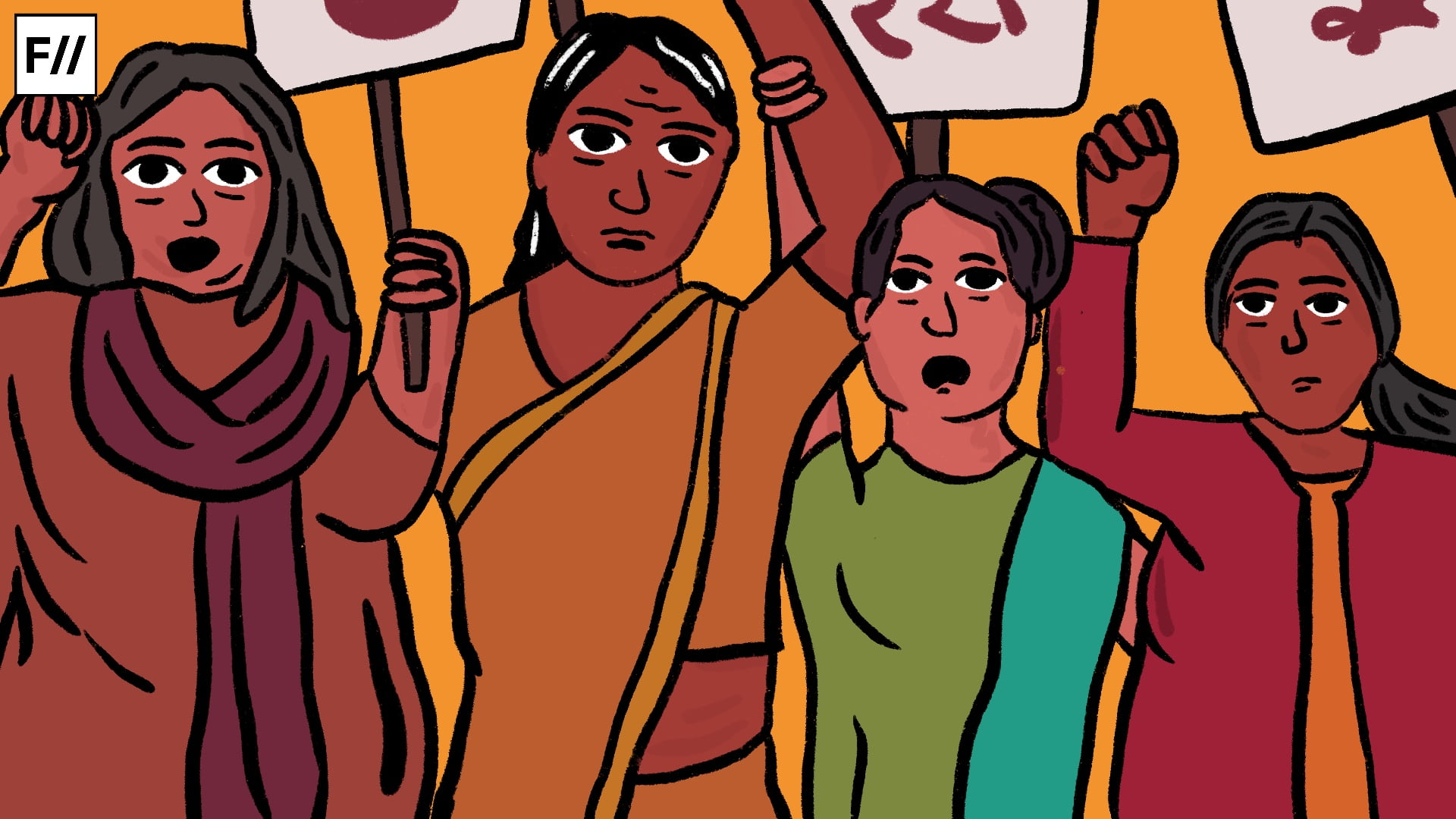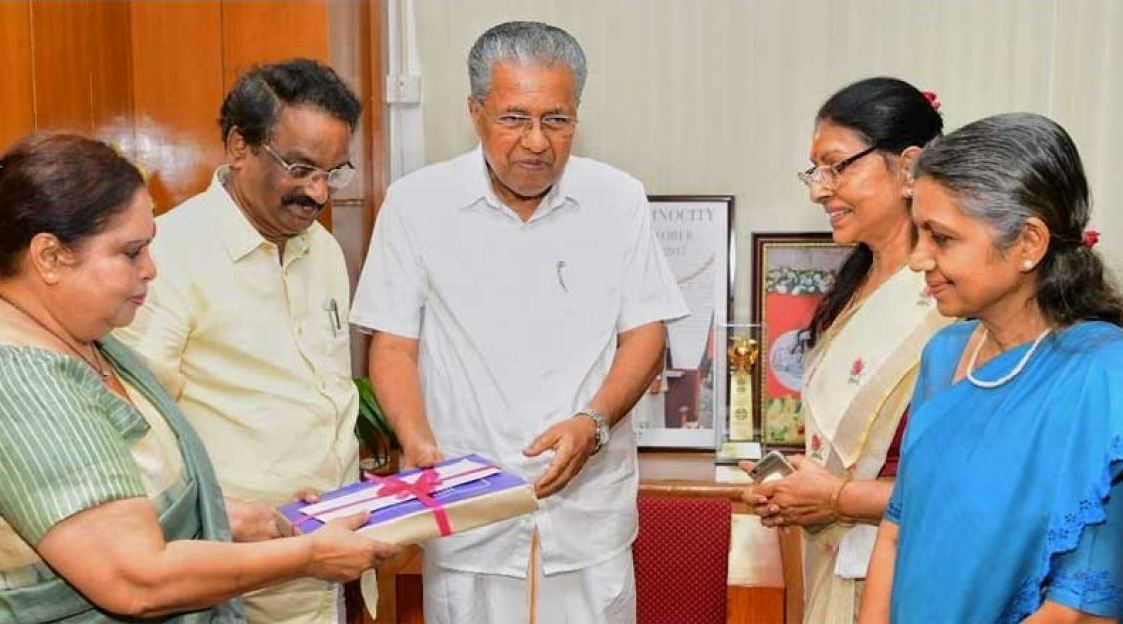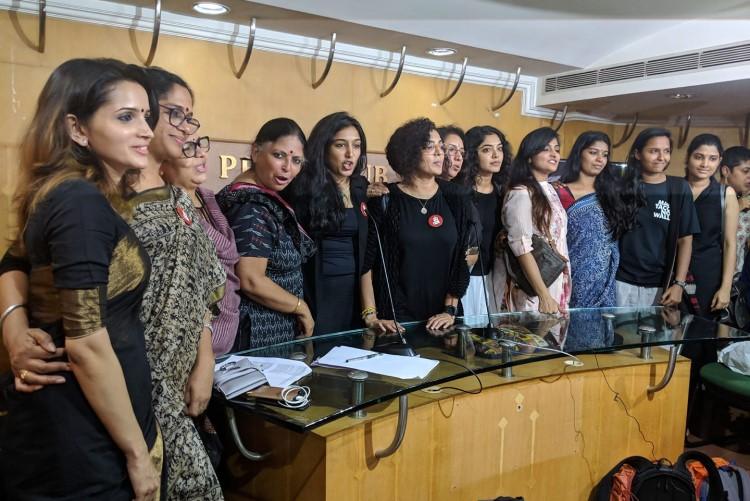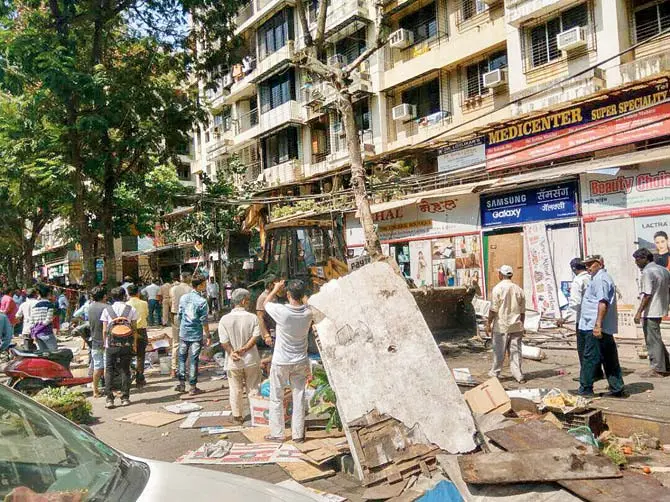Trigger warning: sexual assault
There has always been rampant speculation that sexual exploitation is part and parcel of the Malayalam film industry. The mysterious suicides of actresses Vijayashree, Shobha, her mother Prema, and dancer “Silk” Smitha were all assumed to be connected to the seamy side of the entertainment business. The double murder of actress Rani Padmini and her mother was connected to prostitution and sexual violence as well. Framed as salacious gossip, scandals, or rumors, tabloid material on the sexual appetites and escapades of larger-than-life figures in the Mollywood film industry has always had a huge market share in entertainment journalism in sexually repressed and patriarchal Kerala. Sex sells on screen, behind the screen, and on the news stand.
The age of speculation, however, has come to a sudden end with the release of the Justice Hema Committee report on 19 August 2024.
The age of speculation, however, has come to a sudden end with the release of the Justice Hema Committee report on 19 August 2024. In its final redacted form released to the public, The Hema Committee report, named after the principal author and retired Kerala High Court Justice K. Hema, is the first formal and official inquiry into allegations of sexual harassment and sexual abuse not only in the Mollywood film industry, but also in any regional film industry in India, including Bollywood.
Hema Committee report opens the floodgates
The Hema Committee report was commissioned by the Kerala state government in July 2017 in the wake of the abduction and sexual assault of a Malayalam actress by five men for over two hours inside a moving car in Kochi in February 2017. The perpetrators, including the Malayalam film actor Dileep, were arrested. Dileep was later released on bail.
This attack gave birth to Mollywood’s #metoo movement and it energised women professionals in the Malayalam film industry to form the Women in Cinema Collective (WCC). WCC petitioned the Kerala Chief Minister Pinarayi Vijayan to order a judicial inquiry into the allegations of sexual misconduct in the Malayalam film industry.
The Hema Committee submitted their report to the chief minister’s office in December 2019. The release of this report now with 63 pages redacted after a gap of 4.5 years raises genuine questions about the timing. Just before the release of this report, Kerala was reeling from the catastrophic landslides in Wayanad. The government had come under intense scrutiny in the media in the aftermath of the disaster.
Survivors of sexual abuse in the film industry have boldly taken to the airwaves where they describe in granular detail the assault, abuse and harassment they endured at the hands of “10-15 powerful men and men with connections” in Malayalam cinema.
With the Hema Committee report, the landslides have receded into the background. Another kind of floodgate has opened. Survivors of sexual abuse in the film industry have boldly taken to the airwaves where they describe in granular detail the assault, abuse and harassment they endured at the hands of “10-15 powerful men and men with connections” in Malayalam cinema. In Mollywood parlance, this requirement or obligation to have sex with “powerful men and men with connections” if you want to have a career in the film industry is known as “adjustment and compromise.” Refusal to do so resulted in being unofficially “banned” from the film industry.
When politicians become cinema fans
Two of the most politically consequential allegations triggered by the Hema Committee report are the accusations made against director, screenwriter and chairman of the Kerala State Chalachitra Academy, Ranjith, and those against the actor and general secretary of Association of Malayalam Movie Artists (AMMA) Siddique. Both men enjoy close ties with the ruling political party in Kerala CPI(M), and boasts incumbent ministers amongst their fans. In fact, Kerala’s minister for culture Saji Cherian initially defended Ranjith as a ‘highly respected artist,’ as if such fan sentiments could substitute for actionable responses to allegations of sexual misconduct. Both Ranjith and Siddique have been charged under IPC and have resigned from their leadership positions.
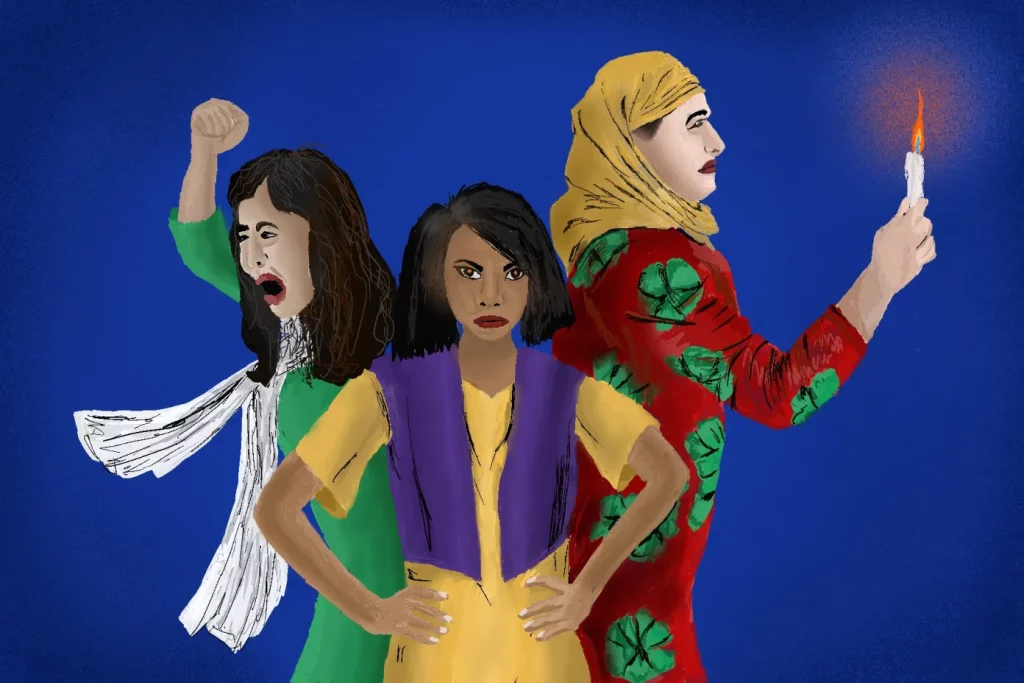
In her formal complaint registered with the Kochi City Police Commissioner, Bengali actress Sreelekha Mitra stated that Ranjith behaved in a sexually inappropriate manner with her inside his flat where she was invited to discuss a potential role in Ranjith’s film Paleri Manikyam in 2009:
‘I was invited to act in a film Paleri Manikyam directed by Ranjith. As part of discussion I was called to the flat in which Sri Ranjith was staying at Kaloor, Kadavanthra, Kochi. During the course of discussion, he clutch (sic) hold of my hand and later on attempted to spread his hand to other parts of my body with sexual intention. Realising that his intentions are not the discussion regarding the film and with sexual intent, I had to escape from the flat and returned to the hotel where I was staying.’
Mitra has stated that she spent the night at the hotel they had arranged for her in terror worrying that they might walk in with a master key. Mitra was told the following day that she was not selected for the film.
Mitra has stated that she has not had any other invitations to work in the Malayalam film industry after that incident. While she finds this to be a direct result of her refusal to cooperate with Ranjith’s sexual advances, or the “unofficial ban in cinema,” the director has defended his decision by stating that he did not find Mitra suitable for the role.
The second allegation against Ranjith comes from a young man from Kozhikode who has stated that Ranjith sexually molested him in a hotel room in Bangalore in 2012.
The second allegation against Ranjith comes from a young man from Kozhikode who has stated that Ranjith sexually molested him in a hotel room in Bangalore in 2012. In his complaint registered with the police, the young man, now 33, stated that he went to meet Ranjith in hopes of securing an acting role; instead, he was sexually molested.
AMMA: The organisation for actors in Malayalam cinema and the Hema Committee report
The second high-profile resignation to come in the wake of the Hema Committee report is that of Siddique, the general secretary of AMMA, the professional organisation of film actors in Malayalam cinema. Actress Revathy Sampath has stated that Siddique raped her in a hotel room in Thiruvananthapuram in 2016 where he had called her to discuss roles in an upcoming film. She had divulged the incident in 2019 during the #metoo protests without filing charges but has proceeded legally now after Siddique questioned the findings of the Hema Committee report. Both rape and criminal intimidation charges have been registered against Siddique in Thiruvananthapuram.

Another AMMA member, CPI(M) MLA from Kollam, and actor who has been implicated in sexual misconduct is Mukesh. According to actress Minu Muneer, Mukesh demanded sexual favors from her in return for a membership in AMMA. CPI(M) has since dropped Mukesh from the committee to draft film policy though he still has not resigned from the MLA seat.
Other AMMA members against whom cases have been charged include actors Jayasurya, Maniyanpilla Raju, and Idavela Babu. AMMA, for its part, has responded to the numerous allegations against its members by having its 17-member Executive Committee collectively step down from their official positions. Adding to the rising temperature of this second #metoo iteration, and tarnishing AMMA’s already soiled reputation, an old video has resurfaced of the Malayalam mega star and AMMA president Mohanlal dismissing the #metoo movement in Malayalam film industry as a ‘fad . . . turning into a fashion.’ The professional organisation for actors has washed its hands off confronting the current hideous revelations about sexual misconduct allegedly committed by its members.
Who will head the tribunal?
One of the recommendations of the Hema Committee report is that sexual misconduct cases as part of workplace disputes in the field of cinema be brought before a tribunal or a conclave for a civil hearing and grievance redressal. The Hema Committee report indicates that even if a dispute is brought before the tribunal, there will be no bar for any person to move the regular courts or other forms of adjudication, civil or criminal, for redressal. The Pinarayi government is on board with the recommendation and has reportedly tasked director and cinematographer and chairman of the Kerala State Film Development Corporation (KSFDC) Shaji N. Karun with formulating a draft policy for the government.
The Pinarayi government is on board with the recommendation and has reportedly tasked director and cinematographer and chairman of the Kerala State Film Development Corporation (KSFDC) Shaji N. Karun with formulating a draft policy for the government.
However, this news is not without its own controversy in the ongoing gender politics in the Kerala film industry. Film director Indu Lakshmi who was one of the awardees of KSFDC’s Women’s Cinema Project has spoken out against Shaji N. Karun’s and KSFDC’s allegedly misogynistic interactions with women directors and film professionals that she experienced during the filming of Nila (2023) produced by KSFDC. Indu Lakshmi has alleged that KSFDC and Shaji N. Karun had verbally attacked her, insulted her, and humiliated her for asking questions, and demanding explanations during the film making. Indu Lakshmi has described the government’s decision to assign the drafting of the film policy to Shaji N. Karun as a ‘mockery‘.’You can put your faith in them. You can also give them the power. But you should also remember that this kind of farce will be remembered in history‘ she said.
Without a doubt, the WCC and the Hema Committee report have succeeded in blowing the lid off the Malayalam film industry’s dirty and dark secret. The time is here and now for the Kerala government to enact effective checks and balances to make the film industry a workplace safe from sexual violence.
